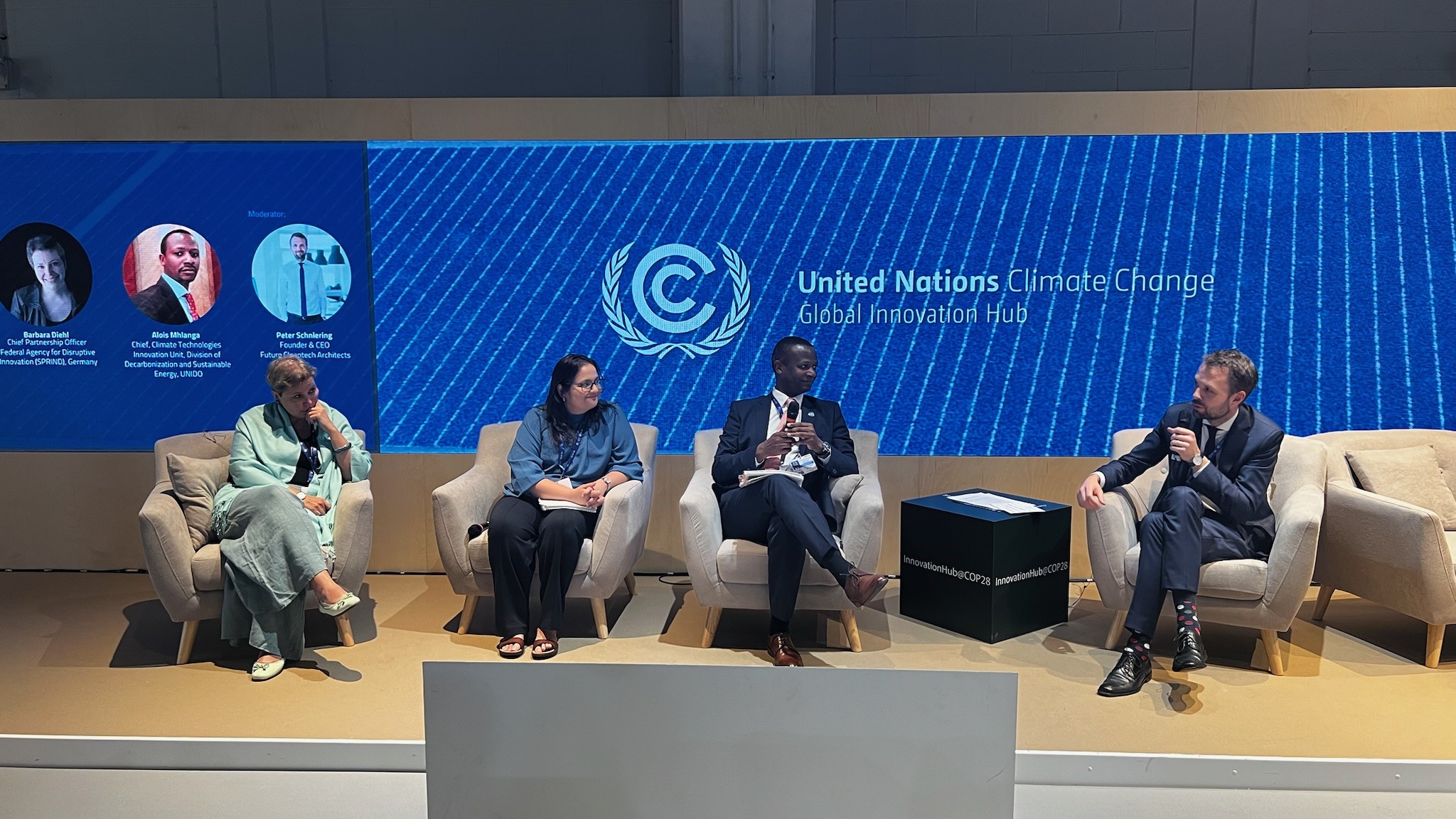Estimates say that more than 50% of technical innovations needed to reach net zero by 2050 either do not yet exist or are not on track. The acceleration of Research, Development, and Demonstration (RD&D) in critical sectors is imperative to ensure these technological gaps are closed on time. While the overall RD&D environment might look promising, institutional and economic hurdles stall climate tech breakthroughs; additionally, large-scale deployment and financing gaps hinder promising developments.
A special thank you to our speakers: Bhava Dhungana (UN Climate Change Technology Executive Committee), Barbara Diehl (SPRIND – Bundesagentur für Sprunginnovationen), and Alois Posekufa MHLANGA (UNIDO)
“Policy-making should be a process where you engage the private sector, bring them on board, to say where we can go collectively. Because then this talks to how you leverage the public funding to attract the private investments to the technology development process.” – Alois Mhlanga (UNIDO)
“Policymakers are now more willing and more open to engage around things like market shaping initiatives. But they don’t know how – and that is, I think, where they also need a lot of help to understand – how these mechanisms can work.” – Barbara Diehl (SPRIND – Bundesagentur für Sprunginnovationen)
“The survey provides guidance and insights on what is actually happening, what are the developing countries needs in this area.” Bhava Dhungana (UN Climate Change Technology Executive Committee)
“The one stand-out technology and key takeaway throughout the entire survey was the importance of energy storage. This stayed the same for all professions, across all regions and countries, it is mentioned in open-answer questions, multiple-choice questions, and ranking questions: energy storage is one of the top priorities that we should be focusing our efforts on.” – Leonie Brand (Future Cleantech Architects)
Stay tuned for the complete key takeaways and more activities! You can find the recording here.

